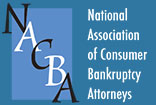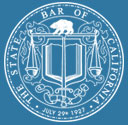Experienced & Reputable
Foreclosure Defense Litigator
W/ Successful Track Record
PLEASE FOLLOW US ON
________Filing bankruptcy chapter 7 or 13. What is bankruptcy? Which chapter is better for you given your circumstances?
California's Home Owner's Bill of Rights,
wrongful denial of loan modification
 Foreclosure Defense Litigation: Knowing your rights, Knowing your options, Avoiding foreclosure!
Foreclosure Defense Litigation: Knowing your rights, Knowing your options, Avoiding foreclosure!According to debt.org, since 2007, nearly 4.2 million people in the United States have lost their homes to foreclosure. By early 2014, that number is expected to climb to 6 million. In California, more than one million homes were foreclosed between 2008 and 2011.
Over the past few years, a growing number of homeowners facing foreclosure have begun to fight back and challenge the irregularities and mistakes occurring in their foreclosure. The legal strategy employed by these homeowners is known as foreclosure defense.
California is a non-judicial foreclosure state, meaning that a foreclosing beneficiary is allowed to foreclose on real property without first getting a court order. This is called a non-judicial foreclosure. A foreclosing beneficiary must comply with the non-judicial foreclosure statutes under California Civil Code 2924 et seq. When a borrower signs a deed of trust (“DOT”) against his/her home the homeowner agrees to have the trustee named in the DOT initiate foreclosure proceedings in the event of default. The power of sale in the DOT is vested in the trustee who must strictly comply with the foreclosure statutes.
California Civil Code sections 2924 through 2924k provide a comprehensive framework for the regulation of a non-judicial foreclosure sale pursuant to a power of sale contained in a deed of trust. This comprehensive statutory scheme has three purposes: ‘“(1) to provide the creditor/beneficiary with a quick, inexpensive and efficient remedy against a defaulting debtor/trustor; (2) to protect the debtor/trustor from wrongful loss of the property; and (3) to ensure that a properly conducted sale is final between the parties and conclusive as to a bona fide purchaser.” Melendrez v. D & I Investment, Inc. (2005) 127 Cal.App.4th 1238, 1249–1250.
The harshness of non-judicial foreclosure has been recognized. “The exercise of the power of sale is a harsh method of foreclosing the rights of the grantor.” Anderson v. Heart Federal Savings (1989) 208 Cal.App.3d 202, 215, citing System Inv. Corporation v. Union Bank (1971) 21 Cal.App.3d 137, 153. The statutory requirements are intended to protect the trustor from the wrongful or unfair loss of his property. Moeller v. Lien (1994) 25 Cal.App.4th 822, 830; accord,
Hicks v. E.T. Legg & Associates (2001) 89 Cal.App.4th 496, 503; Lo Nguyen v. Calhoun (6th District 2003) 105 Cal.App.4th 428, 440. A valid foreclosure under the private power of sale requires strict compliance with the requirements of the statute. Miller & Starr, California Real Estate (3d ed.), Deeds of Trust and Mortgages, Chapter 10 §10.179; Anderson v. Heart Federal Sav. & Loan Assn. (1989) 208 Cal. App. 3d 202, 211, req’d denied and opinion modified (28 March 1989); Miller v. Cote (4th Dist. 1982) 127 Cal. App. 3d 888, 894; System Inv. Corp. v. Union Bank (2d Dist. 1971) 21 Cal. App. 3d 137, 152-153; Bisno v. Sax (2d Dist. 1959) 175 Cal. App. 2d 714, 720.
In the years before the U.S. subprime mortgage crisis of 2008, traditional lending practice by portfolio lenders changed from one in which lenders retained the mortgages they originated in their own portfolios for many, many years to one in which lenders generated as many mortgage loans as possible for resale on the secondary mortgage market. These residential mortgage loans were bundled and pooled into mortgage-backed securities through the securitization process.
In the typical securitization transaction involving mortgage-backed securities, loans were “pooled” together and then transferred to a Real Estate Mortgage Investment Conduit (REMIC) trust. The REMIC trust would then create and sell securities backed by the loans in the pool. These trusts may involve hundreds or thousands of loans that were pooled together, and then sold for thousands of shares.
Almost all the sub-prime mortgages and the millions of conventional mortgages originated before the mortgage meltdown in 2008 were packaged in securitized mortgage securities and sold to Wall Street investors. Securitized mortgages currently comprise over half, or $8.9 trillion, of the $14.2 trillion in total U.S. mortgage debt outstanding.
In some courts around the country foreclosures have been found null and void where the lenders could not establish the chain of ownership within the securitized mortgage-back securitized pools. Some banks are facing a major problem where mounting evidence shows that the originating lender never transferred the loan in question into the securitized trust in the first place.
Some California courts have started to permit homeowners to challenge the loss of their homes on the ground that the foreclosing party did not own the homeowner’s promissory note or security interest and did not represent the party who did. “[O]nly the ‘true owner’ or ‘beneficial holder’ of a Deed of Trust can bring to completion a non-judicial foreclosure under California law.” Barrionuevo v. Chase Bank, N.A. (N.D.Cal. 2012) 885 F.Supp.2d 964, 972. Several courts have recognized the existence of a valid cause of action for wrongful foreclosure where a party alleged not to be the true beneficiary instructs a trustee to file a Notice of Default and initiate non-judicial foreclosure.” Id. at pp. 972-973. Among the cases in this post-2008 financial meltdown era are:
Glaski v. Bank of America (2013) 218 Cal.App.4th 1079, 1088, 1097: A homeowner successfully “raised questions regarding the chain of ownership, by contending that the defendants were not the lenders or beneficiaries under his deed of trust and, therefore, did not have the authority to foreclose.”
Herrera v. Deutsche Bank National Trust Co. (2011) 196 Cal.App.4th 1366, 1378-1379: Deutsche Bank was not entitled to summary judgment on a wrongful foreclosure claim because it failed to show a chain of ownership that would establish it was the true beneficiary under the deed of trust.
Barrionuevo v. Chase Bank, N.A., supra, 885 F.Supp.2d 973–974: The court permitted a cause of action for wrongful foreclosure where a homeowner alleged that Chase lacked authority to foreclose because Washington Mutual securitized the subject loan, divesting itself of any interest, prior to transferring its beneficial interest to Chase.
Sacchi v. Mortgage Elec. Registration Sys. (C.D.Cal. June 24, 2011, No. CV 11-1658 AHM (CWx)) 2011 U.S.Dist. Lexis 68007, *16-21: A homeowner stated a cause of action for wrongful foreclosure where MERS transferred a lender’s beneficial interest in a deed to the lender’s successor after the successor executed without authority a substitution of trustee, making the new trustee’s notice of sale invalid.
Ohlendorf v. Am. Home Mortg. Servicing (E.D.Cal. 2010) 279 F.R.D. 575, 583:
Permitted a homeowner to pursue a claim for wrongful foreclosure where the foreclosing party may have relied on a series of backdated transfers of a deed of trust’s beneficial interest to pursue foreclosure. Documents showed that MERS was the beneficiary under the deed of trust at the time foreclosure proceedings began, but the notice of default listed Deutsche Bank as beneficiary and a mortgage servicer as trustee. To rectify the “taint” of the inconsistent recorded documents, MERS filed a backdated assignment of the beneficial interest to the mortgage servicer, and 11 seconds later the mortgage servicer recorded a backdated assignment of the deed of trust to Deutsche.
Javaheri v. JPMorgan Chase Bank, N.A. (C.D.Cal. June 2, 2011, No. CV10-08185 ODW (FFMx)) 2011 U.S.Dist. Lexis 62152, *12-14: A homeowner stated a claim for wrongful foreclosure against J.P. Morgan Chase by alleging that the lender, Washington Mutual, sold the homeowner’s promissory note to an investment pool, which thereafter transferred the promissory note to another investment pool, preventing J.P. Morgan Chase from obtaining the note when it acquired Washington Mutual’s assets because the note was no longer owned by Washington Mutual at the time of the assignment.
The California Homeowner Bill of Rights became law on January 1, 2013 to ensure fair lending and borrowing practices for California homeowners.
The laws are designed to guarantee fairness and transparency for homeowners in the foreclosure process. Key provisions include:
(From the website of the State of California Department of Justice, Office of the Attorney General:http://oag.ca.gov/hbor)
National Association of Consumer
Bankruptcy Attorneys (NACBA)

California Bar Association

 14930 Ventura Blvd. Ste. 200,
14930 Ventura Blvd. Ste. 200,
Sherman Oaks, CA 91403.
 (818) 907-7467
(818) 907-7467
 (213) 291-6990
(213) 291-6990
The information on this website is for general information purposes only. Nothing on this page or associated pages, documents, comments, answers, emails, or other communications should be taken as legal advice for any individual case or situation. The information on this website is not intended to create, and receipt or viewing of this information does not constitute, an attorney-client relationship.The Law Offices of Juanita V. Miller Proudly Serves Southern California including the following cities and areas: Agoura Hills, Alhambra, Angeles Vista, Arleta, Artesia, Azusa, Baldwin Park, Bellflower, Beverly Hills, Boyle Heights, Burbank, Canyon Country, Carson, Cerritos, Chatsworth, CIty Terrace, Claremont, Commerce, Compton, Covina, Culver City, Downtown LA, Downey, Eagle Rock, East LA, El Monte, El Segundo, Flintridge, Foothill Division, Gardena, Glendale, Glendora, Granada Hills, Hawaiian Gardens, Hawthorne, Hermosa Beach, Hidden Hills, HIghland Park, Highway Highlands, Hollywood, Industry, Inglewood, Irwindale, Korea Town, La Canada, La Cresenta, La Habra Heights, La Mirada, La Puente, La Verne, Lakewood, Lancaster, Lenox, Little Rock, Little Tokyo, Lomita, Long Beach, Los Padrinos, Los Angeles, Los Feliz, Los Nietos, Lynwood, Manhattan Beach, Marina Del Rey, Mission Hills, Montebello, Monterey Park, Montrose, North Hollywood, Northridge, Norwalk, Pacoima, Palmdale, Palos Verdes Estates, Paramount, Pearl Blossom, Pico Rivera, Pomona, Rancho Palos Verdes, Redondo Beach, Reseda, Rolling Hills Estates, San Fernando, San Gabriel, San Pedro, Santa Clarita, Santa Fe Springs, Santa Monica, Signal Hills, Sylmar, Temple City, Torrance, Valinda, Valley Village, Van Nuys, Ventura County, Verdugo City, Viewpark, Walnut, West Covina, West Hollywood, Westlake Village, Whittier, Wilmington, Woodland Hills.